 Life makes it easy to go with the flow, but living your best life requires occasional reflection on where you’ve been and where you’re going. I’ve meant to do so much to advance this program towards the vision I see with my mind’s eye. Yet life seems to find a way to get in the way, convincing me to spend my time in other directions. Truly the challenge in life is not choosing between good and bad but choosing between good and better and between better and best. What exactly is my vision for the program? I’ve stated previously my intention to create a community that supports LDS singles of all ages and social condition — support they should receive from their local wards and stakes but very often aren’t. Yet the total end game I envision is the larger Latter-day Saint community coming together and being one. We need to build Zion for real. And that means changing the culture from one centered on family to one centered on Christ. Be ye one  I can just hear the cringing cries of my many married LDS friends. “Don’t you know the family is under attack? How can you be anti-family?” For the record, I’m not anti-family. Like many LDS singles, I very much want my own family. And like many LDS singles, I’ve often felt ostracized by a culture centered around what I very much want but don’t have. Adopting a culture in which we truly accept everyone who desires to make and keep sacred covenants doesn’t in any way diminish the importance of the family or its role in God’s plan. You can be pro-family and not pro-Christ. But you can’t be pro-Christ and not be pro-family. We’re all — married and single — journeying together through mortality. Helping each other in that journey was the plan from the very beginning. In fact, helping each other still is the plan. Unfortunately, helping each other very often translates into marrieds helping marrieds while we singles get the short end of the stick, assuming we get a stick at all. That’s because it’s human nature to feel most comfortable around those most like ourselves. But “if ye love them which love you, what reward have ye? . . . And if ye salute your brethren only, what do ye more than others? do not even the publicans so?” (Matthew 5:46–47). Helping each other should mean everyone, marrieds and singles, helping everyone. Be the change  As a broader LDS community, we need to start conversing honestly about our culture. And we need to start thinking in new and different ways. Very often we embrace binary thinking. Everything’s either black or white with no in between. And sometimes, that’s appropriate. But that’s not always so. In terms of our culture, we don’t have to choose between supporting the family on one hand and being more inclusive of those without complete families on the other. We can have both. Now, how do we do that? Christ gave us the answer when He taught, “Therefore all things whatsoever ye would that men should do to you, do ye even so to them: for this is the law and the prophets” (Matthew 7:12). We need to demonstrate the example toward others we want them to demonstrate towards us. And that first step towards positive change belongs to us LDS singles. Our culture will never be more inclusive of singles if all we do is wish others would act first. Many of our leaders and other married friends have the natural habit of thinking only about others who are married like them. So the probability they will act first is really low. If we LDS singles want them to be true friends to us, we need to be true friends to them first. And we must make it clear we want to live in Zion for real. Come together  Making the first move isn’t usually an easy choice. But the sometimes difficult path of true discipleship always leads to higher ground offering higher perspectives and higher rewards. Centering our culture on Christ offers the higher perspective of simultaneously supporting families and those who don’t yet have complete families of their own. Centering our culture on Christ offers the higher reward of becoming a truly united community of covenant makers and keepers — Zion for real. And centering our culture on Christ prepares us Latter-day Saints as a people to receive the Lord when He comes again. We can come together. We can build bridges of understanding. We all can be members in reality and not just members of record, united in building Zion for real. And it all starts when we LDS singles take the first step by following the Savior and living the Golden Rule.
0 Comments
 Two weeks ago I encouraged believing the Lord’s promises with the innocence of a child. When such belief truly lives within you, you’ll know you don’t need romance for your life to be joyful and meaningful. That doesn’t mean you shouldn’t strive toward eternal blessings. It just means you don’t need to wait to be happy. It’s not in God’s character to deny you the blessings He promises. Believing He blesses you everyday with what you need and that He’s actively working to provide you even more blessings invigorates the soul with hope in a bright and glorious future in mortality and not just in eternity. Truly, there is always hope because there is always Christ. Yet true belief compels you to work for your success, just as God is also working for your success. In fact, you can’t continue feeling positive without continuing to do something positive. Inaction slowly starves belief. Action feeds belief. That’s why once you truly believe God loves you so much you can’t avoid having a wonderful future, you need to take the next step to keep that belief alive in you. Change how you define opportunity 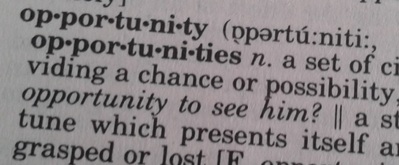 We should all actively pursue every essential ordinance and covenant we lack while remaining true to the ones we have. No true disciple of Christ would accept anything less. At the same time, we need to change our thinking about what opportunity is. The Lord brings us all countless possibilities for eternal companionship, yet many of us dismiss those possibilities while at the same time praying the Lord will bring us possibilities. How ridiculous is that! Please don’t misunderstand me. I’m not suggesting we lower our standards for eternal marriage. I am suggesting we lower and even eliminate many of our filters for dating. We often put way more seriousness on the front end of the journey than appropriate. That’s why I distinguish casual dating (multiple partners and commitment ending with the date activity) from exclusive dating (only one partner and commitment extending beyond any date activity). This distinction lowers our expectations of commitment in the early days of dating. And that helps us accept more of the opportunities the Lord provides for us. Change how you look for opportunity  We also need to change our thinking about how opportunity will come to us. Most singles think their eternal companion is either at a singles activity or online on social media or a dating website. While good options, they’re far from the only ones. Opportunity can find you anywhere, but not if you’re hiding. You can’t take advantage of opportunities you don’t see. Wearing blindfolds limits your probability of success. Again, I’m not suggesting you lower your standards. I am suggesting you expand your vision to include less traditional avenues. The more open you are to those avenues, the more easily opportunities can cross your path, increasing your probability of success. And the older you are, the more imperative it is to include those avenues in your approach. Change how you experience opportunity  Finally, we need to change our thinking about how opportunity will unfold. Too many of us expect to be out-of-this-world impressed with a first date (or even well before that ever takes place). That’s so not how marriage works. Go ahead and rant all you want about how this is eternity we’re talking about to justify your position. Expecting perfection right from the start serves more to keep you single precisely because no one — yourself included — is perfect from the start of any relationship. Again, I’m not suggesting you lower your standards. I am suggesting you adjust your expectations of how those standards will be met. The point is not to find someone who’s already perfect but rather someone who’s good enough to help you grow into perfection together. That’s something you can ascertain only after spending some significant time to make a more fair assessment of that person’s potential as your companion. A personal ministry opens you to opportunity  We’ll lose any changes in our thinking without supportive action. Your best support is your personal ministry. A personal ministry helps you see more of what opportunity is by exposing you to more opportunity. You’ll increase your probability of success by allowing more chances for opportunity to cross your path. And your personal ministry faces you with the imperfections of others every day, helping you lower your expectations of perfection in a companion. Take the next step in your journey home. Change your thinking about opportunity and adopt a personal ministry today. I can’t tell you when you’ll get the blessings the Lord has promised when you adopt a personal ministry, but I can say your journey between now and then will be much more enjoyable when you do.
 Mother’s Day was this past weekend. Ah, Mother’s Day. A day when we thank our mothers for bringing us into the world. A day when we express appreciation to them for sacrificing so much for us. A day when we remind them how much we love them. And of course, it’s a day when many single LDS women feel more incredibly out of place than usual. Over the years I’ve seen an increased awareness of single women within the larger LDS community. And I credit the leadership of the General Relief Society for that change as well as the example of upstanding, well-known LDS single sisters. More married Latter-day Saints are displaying more sensitivity to women who don’t have the subcultural markers of belonging. Although those efforts aren’t always perfect or even close to it, the effort is still there. That wasn’t true 20-30 years ago. I welcome the increased sensitivity. I also welcome what I see should be our next step in the evolution of the role of women within LDS subculture. We need to change how we think about motherhood. After all, it’s not what you may think it is. True mothers in Zion  We commonly think about motherhood in relation to childbearing, and further restrict it to bearing one’s own children. What’s worse, we often confine our thinking to that narrow view. And that’s the whole problem. Yes, motherhood does involve bearing children. But it also involves nurturing them, teaching them, sacrificing for them, and loving them. We don’t have to confine the expression of those qualities to our own biological children. In fact, we don’t have to confine that service to children at all. From our heavenly parents, women have inherited an increased capacity for nurturing and compassion. Although children need nurturing and compassion, so do many adults. Anyone regardless of age or circumstance is blessed when women use those special spiritual endowments in their behalf. It’s especially easy for us Latter-day Saints to view motherhood through the narrow lens of bearing and raising one’s own children. After all, the mark of belonging in LDS subculture is being married with kids. Yet those righteous women who mother others, whether they’re their children or complete strangers, provide valuable service. They are true mothers in Zion. Mother is more verb than noun 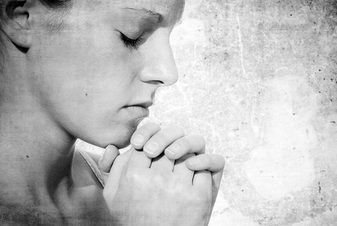 I remember coming home for the holidays towards the end of my master’s degree program. My relationship with my major professor was strained, and my research wasn’t going well. I needed the break. As the holiday break neared its end, I packed my car. But before I left, my mother wanted to pray. As I knelt with my mother and heard her pray for me and the successful completion of my graduate degree, I felt her great love for me. I returned to campus safely but quickly found my research stymied and my relationship with my major professor more strained than ever. I was more than ready to quit. Then the memory of my mother’s prayer came to me, filling me with the strength to continue. Had that not come to me, I doubt I would’ve finished my program. Of course, the righteous woman in this story who effected a needed, positive influence in my life is my own biological mother. But it didn’t have to be. The positive influence she exerted didn’t inspire me to soldier on because she bore my physical body into the world but because she loved me. And anyone can love. Her positive influence could have come from any righteous woman because mother is more verb than noun. Christ is the center  It’s so easy for us to get caught up in the sometimes narrow notions of our family-centered LDS subculture. Centering our culture on Christ helps us to see ourselves and one another more clearly. Christ accepts every child who strives to make and keep every sacred covenant possible. When we center our culture around Him, we see ourselves and others as He does. We also see that perfection isn’t required, but willingness to follow Him is. Righteous covenant-keeping women exert a powerful influence regardless of marital status because their divine inheritance for nurturing and compassion combined with discipleship of the Master comprise an incredibly powerful combination promoting goodness in the lives of all within their circle of influence. You’ll never convince me that isn’t meaningful. If you think motherhood is just about having and raising children, then it’s not what you think it is. Raise your vision to a higher standard. True mothers in Zion love and nurture those within their circle of influence, no matter who bore them and no matter their age. Righteous women who adopt that standard with their actions will always let their true beauty shine forth.
 Some children bore simple, powerful testimonies in church on Sunday. Their innocence caused me to pause and reflect. I left with some strong impressions. Take, for example, this gem: “I know that Jesus loves us and that we can all have a good time in our lives here on earth.” Here’s another: “I know Jesus can make us happy and not sad.” Reflecting upon those testimonies led to questions. Do we LDS singles really believe that? Do we really believe our Savior can save us from sadness and bring happiness into our lives? Do we really believe “we can all have a good time in our lives here on earth”? I’m not certain many of us do. Many LDS singles aren’t very happy. Yet the truth is just as these children spoke it in all its glorious simplicity. Christ really can bring happiness into our lives and make them worth living, whether or not we have the eternal companion He is trying to bring us. But we must first believe before we receive. Liken the gospel to you  Christ can rescue any of us from anything, including the unintended negative effects of our family-centered LDS subculture. He does this by changing our hearts so that we then change our minds to think in new and different ways. When we think joy and meaning come only after romance enters our lives, we deny ourselves the joy and meaning Christ offers to every one of us --- today! Christ loves us so much He died for us. He bled from every pore for us. Of course, active Latter-day Saints, single or married, believe that. But do you believe it personally? Do you believe Christ died for you? Do you believe He bled from every pore for you? He did, but you must first believe the Atonement applies to you personally before it can take full effect in your life. Nephi personalized the scriptures to gain “profit and learning” (1 Nephi 19:23). In like manner, we should personalize the restored gospel to ourselves. That means truly believing its application to you personally. Shift your focus  That’s more than just passive belief or intellectual comprehension. That’s active belief that fills your life with joy and an emotional comprehension that fills your soul with hope. And that’s a far cry from where many LDS singles live. They see the need to be married with kids in order to belong, and all of us want to belong. But not seeing the companion that provides that cultural marker of belonging, many LDS singles feel trapped in hopelessness. Because your focus becomes your reality, focusing on what you lack produces a reality of lack and all the feelings of emptiness that go with it. But that same principle can work in the opposite direction. Change your focus, and you change your reality. That shift in focus comes through faith in Jesus Christ that He loves you and therefore will prepare the way for you to receive your blessings, which He wants to give you. And when you really believe, you’ll know He’s provided that way for you today and not in some distant future eternity. Start believing  Deep down many of us don’t really believe eternal companionship will ever be ours, or we believe it’ll come only after we die. That doesn’t mesh with believing Christ loves us as He does. You can’t really, truly, believe Christ loves you enough to wrought His Atonement for you without also believing the logical conclusion from that truth --- that He loves you so much He wants to bless you now. Love for you so strong that He would bleed from every pore and die an excruciating death hanging from a cross by nails through the wrists isn’t some half-hearted desire to bless you only after you die. That’s desire to bless you right here and now --- today! When you start believing that, you can let go of the “evidences” for why you can’t have eternal companionship and all the false notions many have about timing and embrace the truth of God’s love for you. And you won’t need to see the end from the beginning. You can let your faith carry you forward. Christ extolled the faith of children. When we believe implicitly in the truth as a child does, we can indeed experience true core-of-the-soul joy --- not because we have a subcultural mark of belonging but because we embrace the Lord as the ultimate partner for our journey through mortality Who will lead us to everything we need, including eternal companionship. Believe as a child does. Start believing in the application of the gospel to you personally, and start experiencing personally the blessings of joy and meaning God wants you to have today. |
Author
Howdy! I'm Lance, host of Joy in the Journey Radio. I've been blogging about LDS singles life since 2012, and since 2018 I've been producing a weekly Internet radio show and podcast to help LDS singles have more joy in their journey and bring all Latter-day Saints together. Let's engage a conversation that will increase the faith of LDS singles and bring singles and marrieds together in a true unity of the faith.
Comment
Joy in the Journey Radio encourages the free discussion of ideas but reserves the right to remove and/or block comments which do not conform to LDS standards.
Donate
Joy in the Journey Radio offers many free resources to help LDS singles everywhere, but it certainly isn't free! Help Joy in the Journey Radio in its mission to improve the lives of LDS singles by donating today.
Posts by Month
December 2022
Categories
All
|
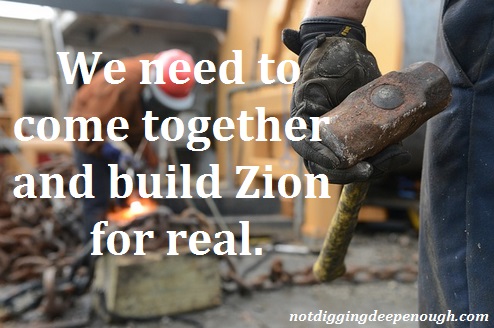

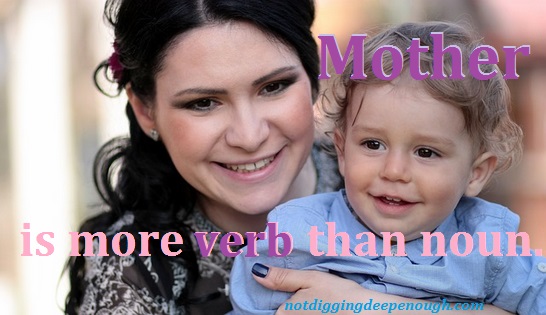
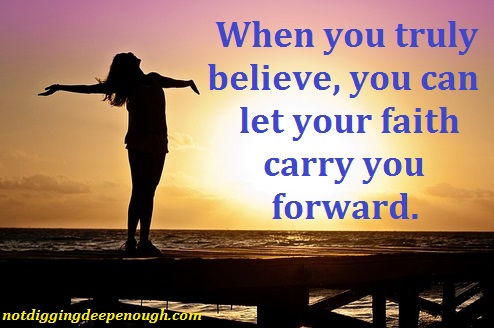
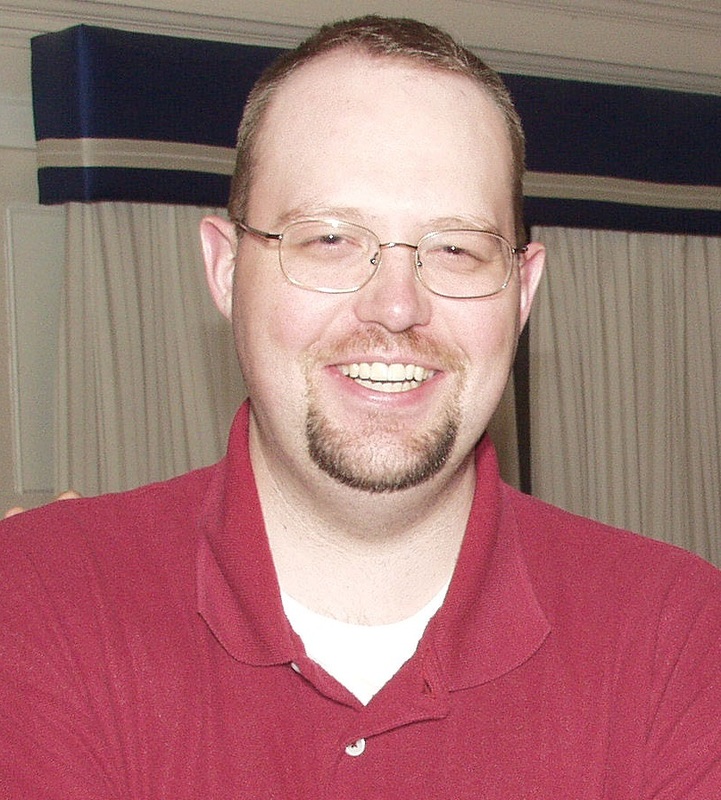
 RSS Feed
RSS Feed